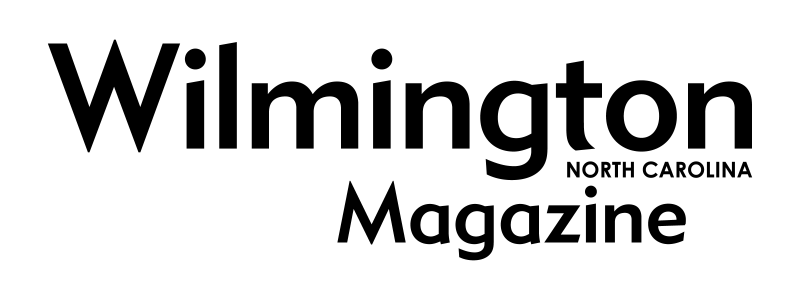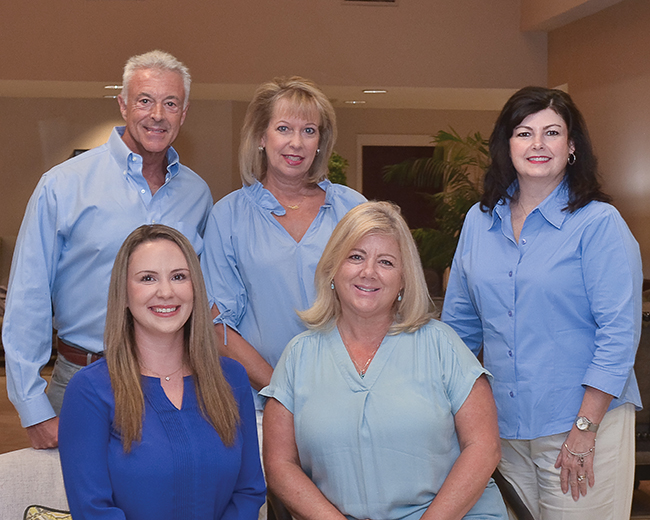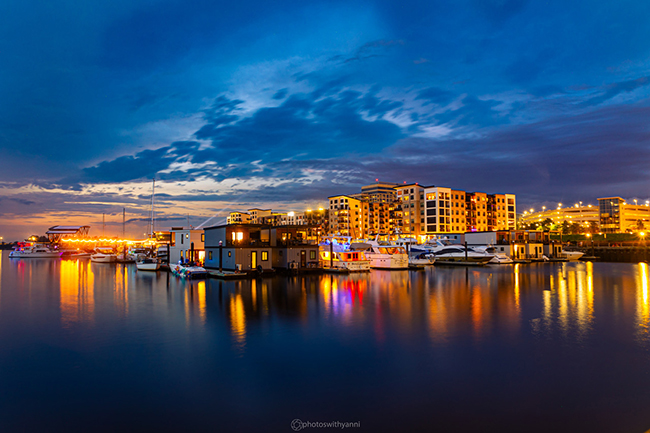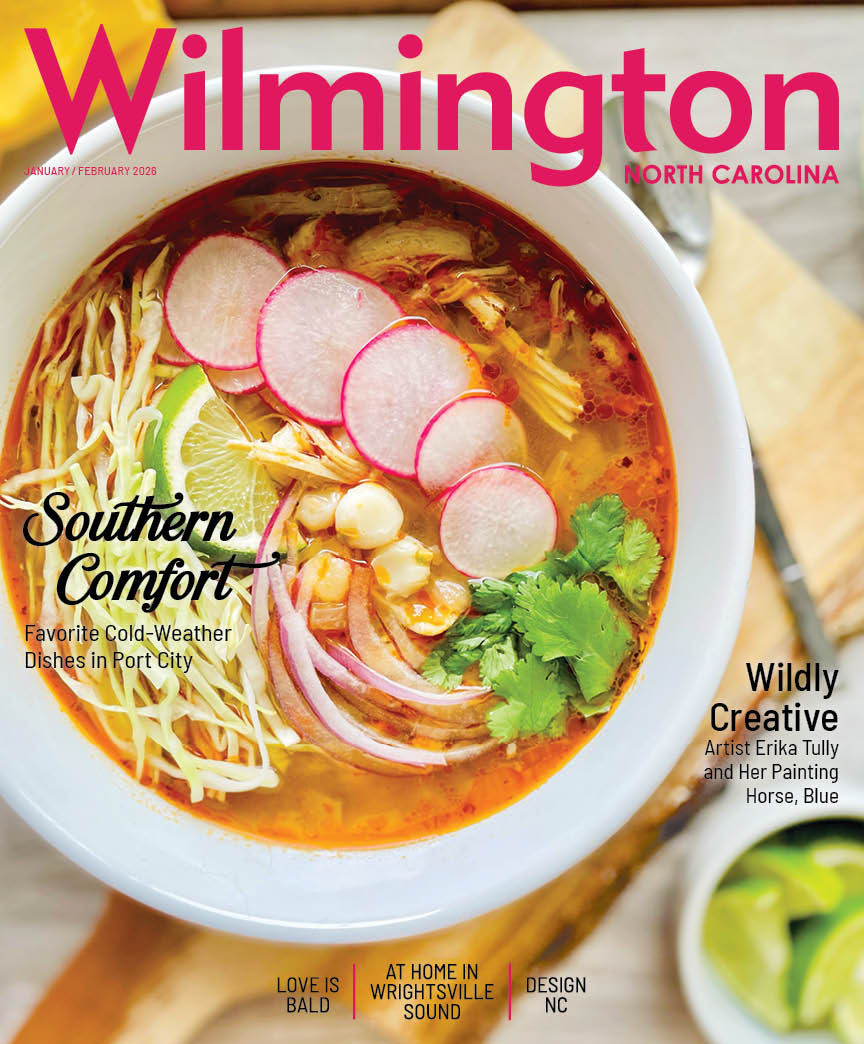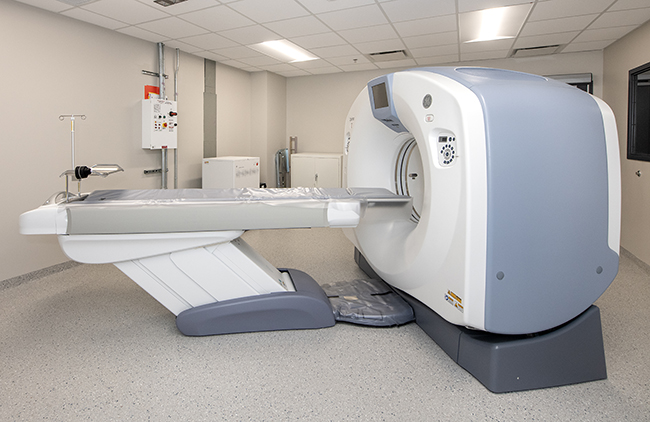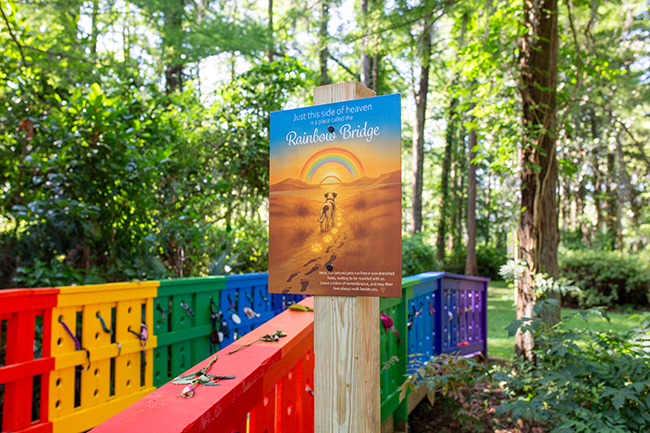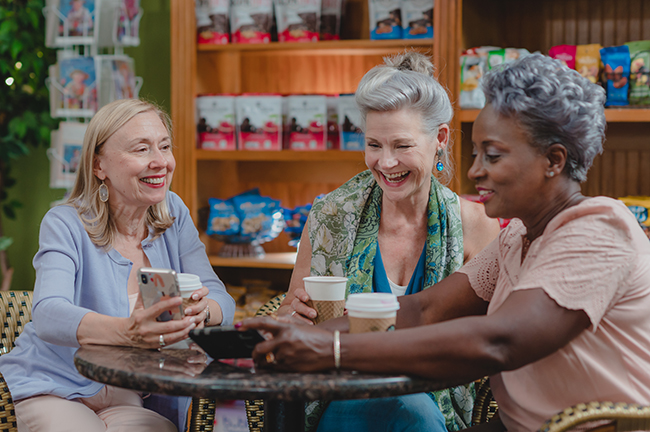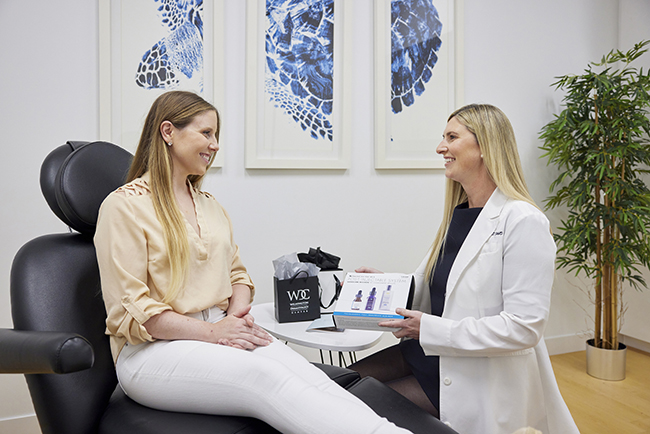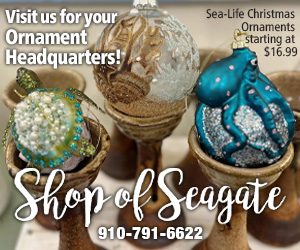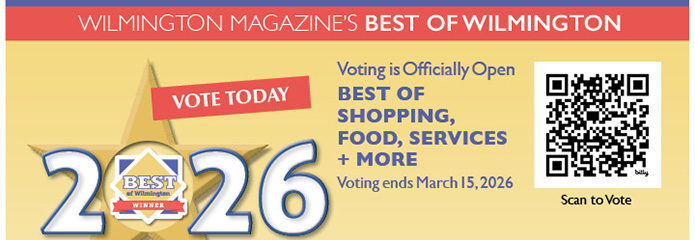Revolutionizing Widowhood
01 Nov 2023
The Modern Widows Club Cape Fear goes beyond your typical support group
By Vera Wilson
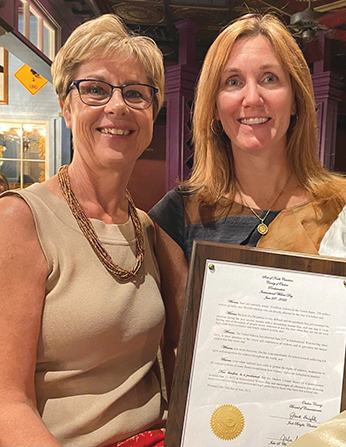
It happens when you least expect it. The grief returns as stabbing as the day your husband died. For Megan Kopka, co-advocate of the local community of the Modern Widows Club (MWC), one such instance was during a chance encounter at her daughter's college graduation. A person she had never met before had known her husband but didn't know he had died.
“It was like a bowling ball in my throat, and tears just burst out of my face. I was eight years out from losing my husband, but when you tell someone new for the first time, it's like I was back in that moment,” says Kopka.
Megan was 38 with two children when her husband Keith died in 2014, four years after his ALS diagnosis.
“Being widowed was 1,000 times harder than I imagined. I was alone trying to figure it all out,” says Kopka.
After three years of counseling and still reeling from her loss, her therapist encouraged her to “find her tribe.” Grief support services usually end after 24 months, so Kopka was looking for something beyond that. After Keith's death, she had researched different groups on Facebook, but couldn't find the right fit. MWC was different. It was uplifting.
“The MWC community was always positive,” says Kopka. “Their community and impact reports [which highlight their yearly achievements and goals] were mind-blowing.”
So, she gave them a try. In 2019, she attended a meeting in Atlanta, and by September, she eagerly began the work of building an MWC in the Wilmington area. The Cape Fear community, led by Kopka and co-advocate Gail Loeb, is currently the only one in the state.
On its website, MWC states it's a women's health organization serving widows seeking to understand their experience and focus on growth. Its mission is to serve widows to lean into life, build resilience, and make a positive difference in society. The club encourages widows to focus on growth, not grief.
“We're not rehab, we're not a grief group—we're a support group,” explains Kopka. “We think of ourselves as independent Americans. But there are two things outside of yourself that you need for resilience: one is a mentor and the other is a tribe.”
The club strives to provide both. It describes itself as mentor-focused; however, a widow is not assigned a mentor, per se, although that one-on-one relationship can happen organically within a group. Rather, leaders—of which Megan is one, after receiving appropriate training—guide groups of Wisters® (aka widow sisters) who meet monthly.
“It really is about sharing life hacks, things that get us up and motivated,” says Kopka. “We also do things outside our monthly meetings. We have social activities and volunteer with WARM [a local charitable organization].”
Every month, the club focuses on one of the seven pillars of healthy widowhood as defined by MWC: emotional and mental health; physical health; financial health; purpose and meaning; spiritual health; fun and creative health; and relational health. At the MWC national empowerment meeting that Kopka recently attended, the physical health focus was on cooking for one, with a focus on nutritious and easy-to-prepare meals.
Kopka, a certified financial planner who owns her own firm, also talked about the importance of financial health. She shared some staggering statistics. Eight percent of women outlive their spouse, leaving them in control of most of the $30 trillion in baby boomer wealth by 2030. Unfortunately, they are too often uninformed about their finances, leaving them vulnerable, and many widows will see their income decrease dramatically after their spouse dies.
“I was so shocked in one of our Zoom calls,” says Kopka. “I just asked: if you had a friend who was caregiving and her husband was terminally ill, what would you advise her to do? Five out of seven said get a major credit card in your name.”
MWC tries to alleviate some of the financial burden. Their MWC's Love for Widows Benevolent Fund gifts grants to those in need, like a widow who ended up homeless. Kopka has received a grant in support of the book she's writing for financial advisors on how to work with widows.
If there's not an MWC community near you, there are virtual meetings, a blog, a newsletter, a podcast, videos, events, and courses, all accessible through their website. There are also communities in countries like India and Costa Rica and ones for Black and Spanish-speaking widows, as well as survivors of suicide.
You can also join a Wisters' club. There are currently clubs for travel, parenting, dating, art, and books. Kopka is considering going on a trip next year to the Canadian Rockies as part of the travel club.
MWC advocacy is rooted in their extensive research. The club has co-authored impactful studies about widowhood. They are leveraging their research to make data-driven decisions about what widows need to thrive and to influence legislation and laws that penalize them. Kopka hopes to one day make her way to DC to lobby on behalf of her Wisters.
MWC is a nonprofit organization. If you wish to donate, please visit modernwidowsclub.org where you'll have the option to designate that your donation goes to the Cape Fear MWC.
